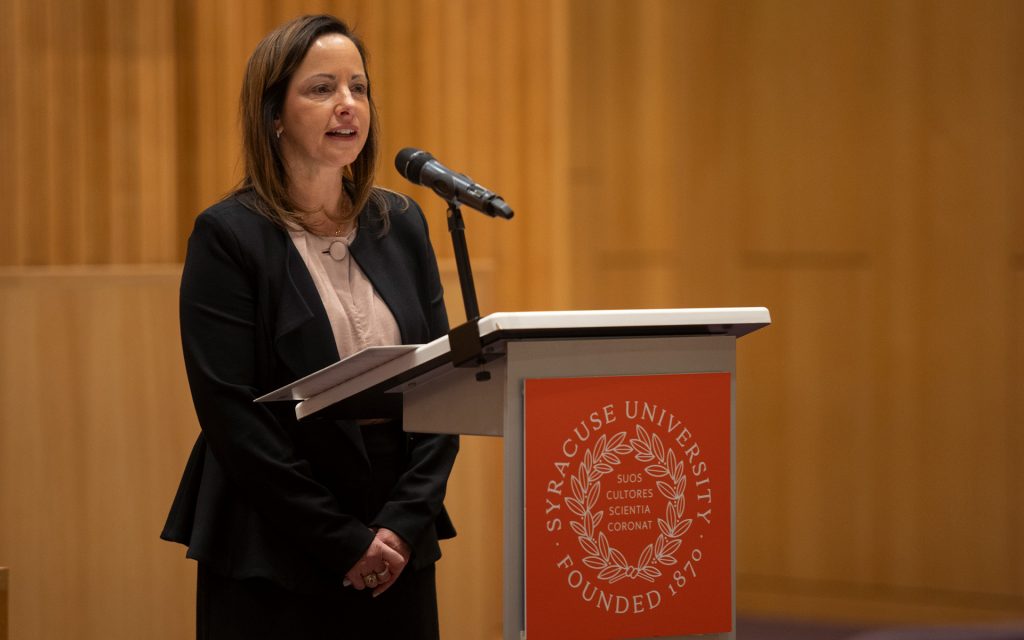
Over several semesters, student attorneys in the Betty and Michael D. Wohl Veterans Legal Clinic (VLC) worked under the supervision of VLC Executive Director and Professor Beth Kubala to represent the Appellant in Phillips v. McDonough a case adjudicated by the U.S. Court of Appeals for Veterans Claims (CAVC). This included many hours of research, outlining, and writing briefs, among other legal tasks.
“This case illustrates the dedication of VLC students to ensure our client received the best legal representation possible, no matter how long the case takes to be resolved. I am also impressed by the work produced by our students which measures up to that of professional law firms and the military.”
—Beth Kubala, Executive Director of Clinical Education
The Appellant in this case was a long-term client of the VLC, first representing him at the VA Regional Office (RO) and before the Board of Veterans Appeals (BVA). This appeal resulted from a BVA decision denying an earlier effective date for the onset of his claim after a 26-year fight to secure veteran’s benefits
“Veterans claims cases can take years to come to a resolution as Phillips reflects,” says Kubala. “This case illustrates the dedication of VLC students to ensure our client received the best legal representation possible, no matter how long the case takes to be resolved. I am also impressed by the work produced by our students which measures up to that of professional law firms and the military.”
VLC students provided written support to their client throughout the legal process that started in 2020. The case was stayed in 2021 due to pending decisions Arellano v McDonough (Supreme Court) and Taylor v McDonough (Federal Circuit) that had major implications for arguments raised in Phillips and impacted the VLC’s strategies and subsequent filings.
“Not only did the law students research, outline, and draft the briefs, but if the case were called to oral arguments, one of the students would have argued it. We knew the contested issues inside and out because Professor Kubala demands excellence from her students, and our veteran clients deserve excellence in our work. After the precedential decisions above, over a hundred hours collectively went into re-strategizing this case to draft a reply brief within the 30-day window of the Secretary’s filing once the stay was lifted.”
—Seth M. Owens L’24
The CAVC issued a Memorandum Decision, on 5/31/2024, remanding the case to the BVA with specific, express instructions to consider certain aspects of the evidence of record when adjudicating the claim for an earlier effective date. Re-adjudication before the BVA is still pending.

Seth M. Owens L’24, now a Staff Attorney with the VLC, worked on the case while a student in the VLC. He noted that Professor Kubala provides her VLC students with a “firm-like” atmosphere that leads to professional growth and experiential learning in the clinic. “Not only did the law students research, outline, and draft the briefs, but if the case were called to oral arguments, one of the students would have argued it,” says Owens. “We knew the contested issues inside and out because Professor Kubala demands excellence from her students, and our veteran clients deserve excellence in our work. After the precedential decisions above, over a hundred hours collectively went into re-strategizing this case to draft a reply brief within the 30-day window of the Secretary’s filing once the stay was lifted.”
